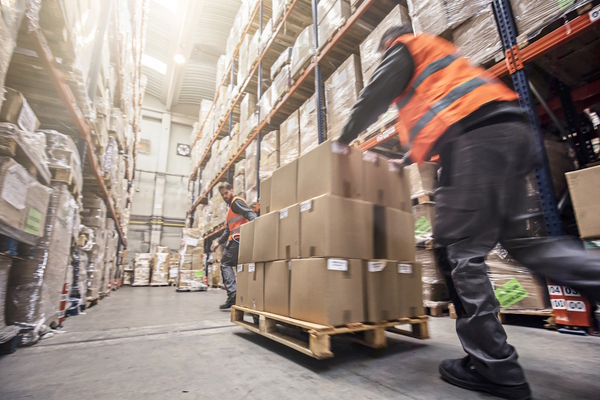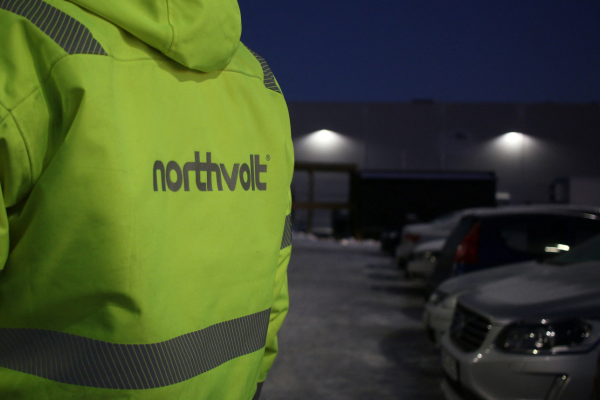Taking action on more responsible purchasing
Businesses of all types and sizes are now factoring environmental, social and governance requirements into how they purchase items

The case for socially responsible purchasing
Businesses that implement socially responsible purchasing benefit from a stronger brand, higher margins and reduced costs
Socially responsible purchasing is now a priority for any business worldwide that aims to make smart buying decisions. Research by the Hackett Group finds that 88 per cent of organisations now consider supporting diversity and social responsibility in their corporate culture an important business objective, and 46 per cent plan to support local businesses in their communities directly.
Not only is this simply the right thing to do in the battle to reduce carbon emissions and social unrest, and help smaller and more diverse businesses thrive, but it’s also increasingly demanded by customers, investors and employees. This ensures that the organisation consciously operates in ways that positively contribute to the economic, social and environmental development of society.
There are bottom-line benefits, too. Research by McKinsey & Company finds that organisations that implement responsible purchasing see a 10 to 20 per cent increase in both growth and valuation compared to their competitors, and reduce costs by 5 to 10 per cent as a result of operational efficiency and waste reduction. According to Forrester, 72 per cent of organisations implementing corporate social responsibility initiatives report improved supplier relationships.
Challenges to overcome
But this is not quite as simple as it seems…
Yet, there are obstacles for those working in procurement to overcome. Many organisations struggle to identify local and diverse businesses or products that have been certified as sustainable. According to Gartner research, over half (55 per cent) of procurement leaders say they don’t have specific strategic purchasing requirements, and 40 per cent admit they find it hard to find qualified suppliers.
Procurement teams looking to implement a socially responsible purchasing policy across the organisation must overcome three main challenges. These are: establishing transparency in supplier social responsibility performance; empowering employee purchasing compliance to meet responsible purchasing goals; and optimising supplier identification and development to meet requirements imposed by either regulations or the business itself.
Practical actions for procurement teams
Businesses need to clearly define responsible purchasing targets, and ensure existing or new suppliers meet these
Despite a lack of clear goals, 81 per cent of Amazon Business 2024 State of Procurement Report respondents say they have either an internal or external mandate to purchase from different types of certified sellers. The most common elements here are sellers that follow sustainable practices (59 per cent), certified small businesses (40 per cent) and local businesses (39 per cent).
The survey also reveals the primary criteria that procurement must consider. These include the location where products originate (94 per cent), the HR policies and standards of the supplier (92 per cent), the type of transportation used to ship products (90 per cent), and both the environmental, social and governance (ESG) and diversity, equity and inclusion (DEI) policies of that organisation (both 89 per cent).
For organisations looking to accelerate a responsible purchasing strategy, there are three steps:
- Define targets and procurement policies: Establish clear targets that suppliers must meet, and look at their contribution to and compliance with the organisation’s overall responsible purchasing strategy
- Identify and select suppliers: Assess your current suppliers and partners against sustainability and social responsibility criteria, and make this a key factor when selecting potential new providers
- Measure and report impact: Use effective evaluation and key performance indicators, covering a range of economic, social and environmental impacts, and make use of third-party certifications
Responsible purchasing in action
Some organisations are already starting to put responsible purchasing into practice…
UK online tech retailer Portus Digital is committed to helping businesses reduce the environmental impact of purchasing new electrical items. It allows customers to send packaging back free of charge, and offers a free e-recycling service, where old tech is collected and recycled in accordance with WEEE regulations.
With sustainability at the heart of its ethos, it’s essential that Portus’s own supply chain meets high standards. In this case, the focus is on eco-packaging, using 100 per cent recycled and recyclable materials, and using of carbon-neutral couriers and shipping options.
In January 2024, Portus Digital launched on Amazon Business, to extend its reach to other businesses. “We launched on Amazon to help more businesses make sustainable IT decisions,” says Rob Judd, director of sales. “We’re pleased by the response we’ve managed to generate so far – it’s exceeded our expectations.”
How Amazon can help
Amazon Business allows you to identify suppliers that meet particular criteria and monitor spend, enabling organisations to demonstrate progress
Amazon Business can help organisations identify suppliers against predefined social responsibility and sustainability goals, including ensuring that corporate buyers only have the choice of purchasing from these businesses. Personalised messages can also be included for buyers explaining the policy, and how they are helping to meet objectives.
From a sustainability perspective, organisations can access more than 550,000 products with the Climate Pledge Friendly label from over 50 certifiers, including the Forest Stewardship Council, Fairtrade International and Carbon Neutral by Carbon Trust. Businesses can also choose delivery times to avoid peak traffic or receive fewer bulk deliveries, and can also select Ships in Product Packaging for eligible products to reduce waste and allow recycling.
When encouraging diverse and local businesses, including SMEs and minority-owned companies, organisations can ensure that preferred sellers are made available. This allows them to track such spending and report on progress, helping them to demonstrate the impact they are having on local businesses and community relationships.
Learn how Amazon Business can support your social responsible purchasing.

Business Reporter Team
You may also like
Most Viewed
Winston House, 3rd Floor, Units 306-309, 2-4 Dollis Park, London, N3 1HF
23-29 Hendon Lane, London, N3 1RT
020 8349 4363
© 2024, Lyonsdown Limited. Business Reporter® is a registered trademark of Lyonsdown Ltd. VAT registration number: 830519543





